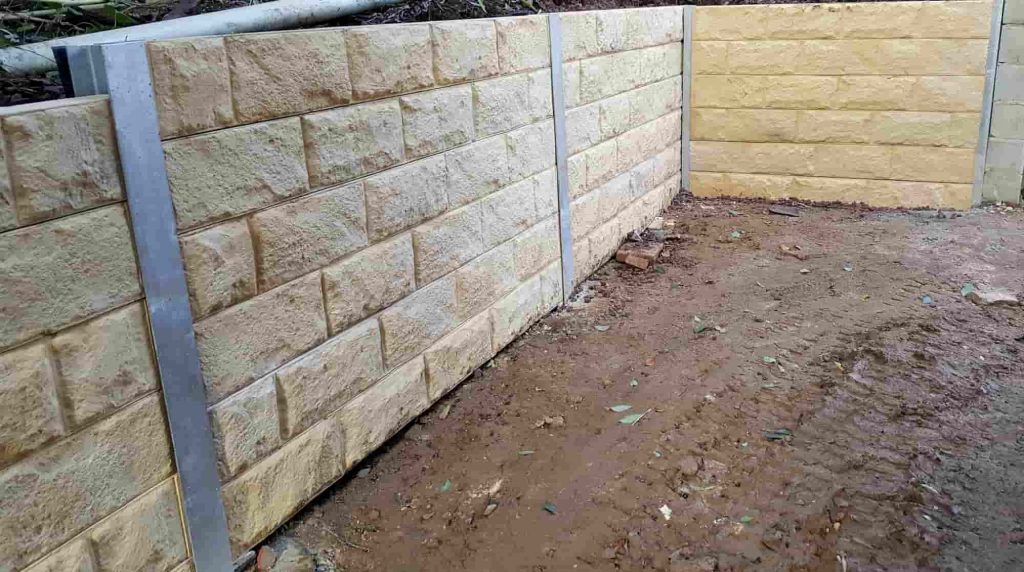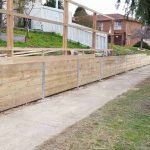Introduction
Transforming outside spaces is not practically visual appeals; it has to do with functionality and sustainability. One of the most efficient ways to accomplish this is through the installation of maintaining walls. Keeping walls serve an essential role in handling soil erosion, producing flat surface areas for landscaping, and enhancing the overall appeal of your garden or yard. However achieving a best retaining wall requires competence, ability, and the right products. This post will look into the world of skilled retaining wall installers and how they can change your outside space utilizing different products like timber sleeper, concrete sleeper, and H beam
Understanding Maintaining Walls: The Basics
What is a Maintaining Wall?
A retaining wall is a structure developed to hold back soil and avoid erosion. They are frequently used in landscaping to develop terraces or leveled areas in sloped yards.
Why Are Retaining Walls Important?
Retaining walls are important for several factors:
- Erosion Control: They help prevent soil from sliding down slopes. Landscaping Opportunities: Create functional flat areas on sloped land. Aesthetic Appeal: They can boost the appearance of your garden.
Materials Utilized in Retaining Wall Construction
Timber Sleeper
Timber sleepers are a popular option for keeping walls due to their natural appearance and ease of usage.
Advantages of Wood Sleepers
Natural Look: They blend flawlessly with outdoor environments. Cost-Effective: Normally more economical than concrete options. Versatile Style: Easy to cut and form to fit any project.Disadvantages of Lumber Sleepers
Durability Concerns: Susceptible to rot and bug damage. Maintenance Needed: Regular treatment required to lengthen lifespan.Concrete Sleeper
Concrete sleepers have actually become progressively popular due to their strength and durability.
Advantages of Concrete Sleepers
Longevity: Resistant to weathering, bugs, and rot. Low Maintenance: Minimal upkeep required compared to timber. Variety of Styles: Offered in numerous textures and colors.Disadvantages of Concrete Sleepers
Higher Preliminary Expenses: More costly than timber options. Heavy Weight: Needs professional setup due to weight.H Beam
H beams offer structural support for bigger maintaining walls that require extra stability.
Advantages of H Beams
Strength and Stability: Perfect for high-load applications. Durable Product: Resistant to rust when properly coated. Versatile Use Cases: Appropriate for various landscaping designs.Disadvantages of H Beams
Cost Consideration: More costly than standard materials. Installation Intricacy: Requires experienced specialists for appropriate setup.Choosing the Right Installer
What Makes a Professional Installer?
When it pertains to changing outside spaces with proficient retaining wall installers, professionalism matters profoundly. A professional installer should have:

- Extensive experience in different products including timber sleeper, concrete sleeper, and H beam. A robust portfolio showcasing past projects. Positive client testimonials showing reliability and quality work.
Questions to Ask Potential Installers
- What products do you suggest for my specific project? Can you offer references from previous clients? Do you have liability insurance?
The Setup Process: Step by Step
Initial Consultation
Before any work starts, an initial consultation with the installer is vital to comprehend your requirements, spending plan, and vision.
Site Assessment
The installer will examine your residential or commercial property's topography, drainage systems, and potential obstacles throughout installation.
Designing the Wall
Collaborating with a specialist permits you to choose the best design suited for your landscape while ensuring structural integrity.

Preparing the Site
This involves clearing the location where the wall will be put, which might consist of eliminating plant life or debris.
Building the Wall
Finally, knowledgeable installers will implement their know-how in putting down either wood sleepers, concrete sleepers, or H beams according to plan requirements while ensuring security requirements are met.
Maintenance Tips for Your Keeping Wall
Regular Inspections
Check https://zenwriting.net/gundangnyo/h1-b-selecting-the-right-products-with-assistance-from-leading-retaining for indications of wear or damage at least twice a year, particularly after heavy rain or storms.
Drainage Solutions
Proper drain is essential! Guarantee that water flows away from your retaining wall to prevent saturation which can lead to failure over time.
Cleaning
Keep it tidy! Eliminate any debris that accumulates on top or around your wall which can trap wetness against its surface.

FAQs About Keeping Walls
Q1: For how long does it require to install a keeping wall?
A: The setup timeframe varies based upon size and product but generally ranges from 1-5 days depending upon complexity.
Q2: Can I construct my own keeping wall?
A: While it's possible for do it yourself lovers who have experience, working with professionals ensures better results concerning safety and longevity.
Q3: How much does it cost to set up a retaining wall?
A: Costs vary extensively based upon material choices (timber sleeper vs concrete sleeper), size, location specifics; anticipate anywhere from $15-$50 per square foot installed professionally.
Q4: Do I need permits for constructing a retaining wall?
A: Yes! Most regional authorities require authorizations specifically if the wall surpasses specific height limitations-- consult with experts who understand regional regulations!
Q5: Will my plants be impacted by a new keeping wall?
A: It depends upon positioning; nevertheless appropriate planning by experts can reduce interruption while enhancing total landscape health!
Q6: How do I choose between timber sleeper and concrete sleeper?
A: Think about looks versus resilience; if you're trying to find something beautiful that mixes naturally select timber however if longevity is essential then lean towards concrete!
Conclusion
Transforming outdoor areas with knowledgeable retaining wall installers is not merely about erecting structures; it's about crafting tailored options that harmonize performance with visual appeal. Whether you opt for timber sleeper walls that stimulate rustic appeal or strong concrete sleepers designed for durability-- comprehending your choices empowers you as a house owner! Seeking professional help guarantees every aspect of installation satisfies high requirements while attending to both immediate requirements and future maintenance issues efficiently! So why wait? Welcome this opportunity today; turn your landscape dreams into reality by collaborating with experienced installers who bring development right into your backyard!